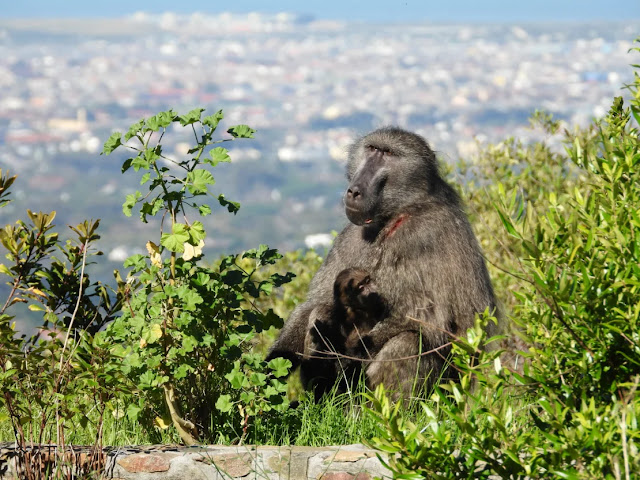How Cape Town is learning to live with baboons

On the outskirts of Cape Town an unusual resident can often be found rummaging through rubbish bins and around back yards. The chacma baboon, native to southern Africa, has become quite familiar with the urban setting. Most of these primates spend the majority of their time in the hills and slopes on Cape Town’s periphery. However, their traditional feeding grounds are on the flatter lowground, right where the suburban sprawl has arrived in recent decades. This has created an urban conflict, with many human residents unhappy with the presence of the primates. Baboon researcher Esme Beamish, from Cape Town University’s Institute for Communities and Wildlife in Africa, explains that it makes sense for the monkeys to venture into the city in search of food. “Our environments are enticing not only because of the excess food that we have, the lush gardens and the bins, but also play spaces [for baboons],” she says. “Even if we had the perfect baboon proofing of urban areas, they would still...
